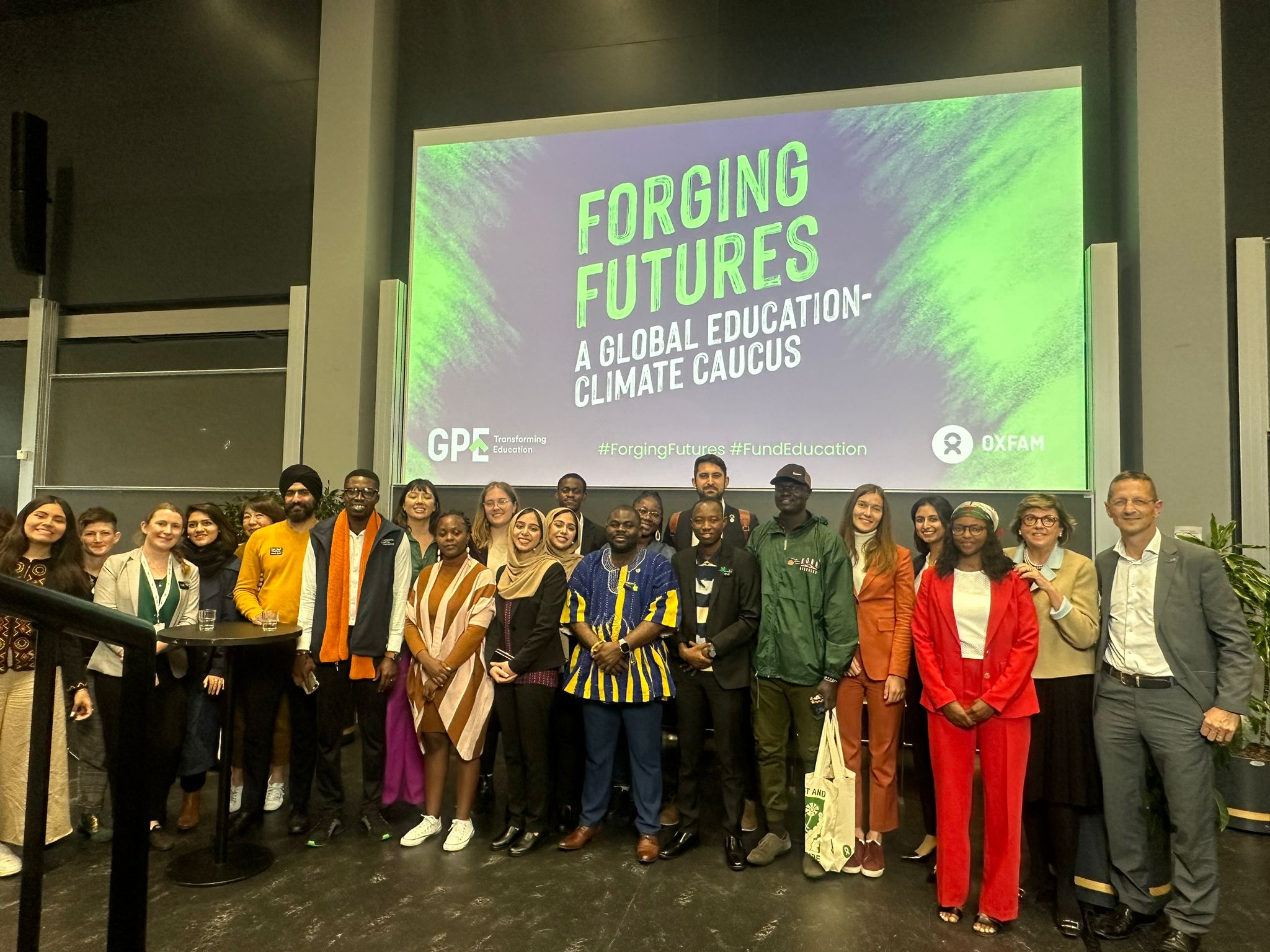Empowering youth and students as partners for climate justice in education
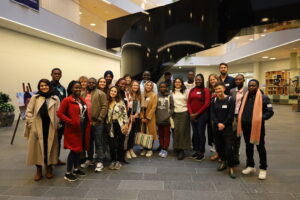
Global youth and student representatives gathered in Copenhagen last month from 3rd – 5th October to mobilise a collective call for action to deliver on education for climate justice. Organised by Global Student Forum and funded by Oxfam Denmark, the group of 25 youth and students followed a programme for shared learning and empowerment facilitated by Students Organizing for Sustainability – International. Three days of training culminated in co-production of a joint youth and student statement calling for action on education for climate justice, which was shared at Global Partnership for Education and Oxfam Denmark’s high level Forging Futures Conference in Copenhagen on 6th October. During Forging futures – Climate education caucus, youth representatives Sofia Luna Quispe, Mock COP campaign coordinator from Peru, Stella Murugi, All Africa Students’ Union from Kenya, and Grace Franco, Global Student Forum from Australia presented the joint youth and student statement for climate justice in education.
The youth and student participants dug deep into exploring shared experiences and perceptions of climate and environmental crises. Discussions highlighted the parallels in how people across the globe are being impacted by these crises despite the vastly different geographical, social and political contexts in which they live.
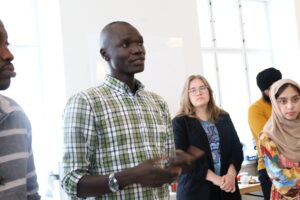
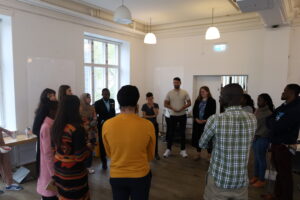
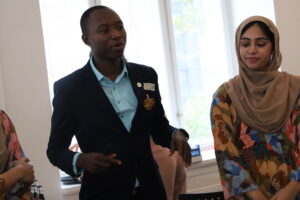
The climate crisis amplifies the injustices of the current global economic and political systems and education can be both and enabler for continuing this trajectory, or provide a key mechanism for a transformational shift towards climate justice. When extreme weather events hit local communities our education institutions are at the heart of this, young peoples’ education is put on hold and halted, education institutions can be devastated and likewise they can provide protection for community when there is nowhere else to go.
Taking the time to listen to our peers from across the world, share understandings, perspectives and priorities for education and climate justice needs to be held sacred. Such collaborations create space to connect and understand our differences whilst finding common ground and building strength as a collective.
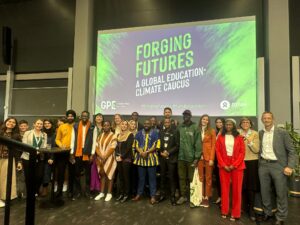
Youth and students are calling for decolonizing of our education system, the physical spaces of our formal education institutions, and both what and how we learn. Education currently reinforces hierarchies and dismissal of crucial indigenous, traditional and local knowledge systems. We need to address the root causes of the climate and environmental crises. We need to to transform learning to ensure students and youth are empowered to be active participants in climate solutions through collaborative capacity building built on respect and principles of justice.
Key points of the youth and student statement
The statement calls for transformation through a range of mechanisms. It recognizes that such a shift requires change at many levels, which is why it calls for climate justice to be embedded in educational policy and strategy, and for delivery of this through partnership working at every level – from ministerial through to student and community collaborations. The statement is action oriented highlighting the urgency of the situation.
Themes of the statement cover:
- The entire education system; locally, nationally and internationally – calling for joined up action with recognition of local contexts, and for coordinated efforts to prepare for greater flexibility to respond effectively to climate related migration and displacement
- The physical spaces our education institutions occupy and the need to role model sustainability.
- Learning content, which has climate justice woven through it for interdisciplinarity, across levels of education and integrated across all areas of academia.
- Pedagogy which promotes transformative learning, delivering on the needs to developing systems thinking, critical problem solving, collaborative working and futures ready citizens.
Share our statement across your networks, use it to progress your own and our advocacy work for better education, which delivers on climate justice, and partner with us to mobilise student and youth voice in this space.
Read the full Education for climate justice youth and student statement.
Watch the full Forging Futures – Global Climate Education Caucus here.

